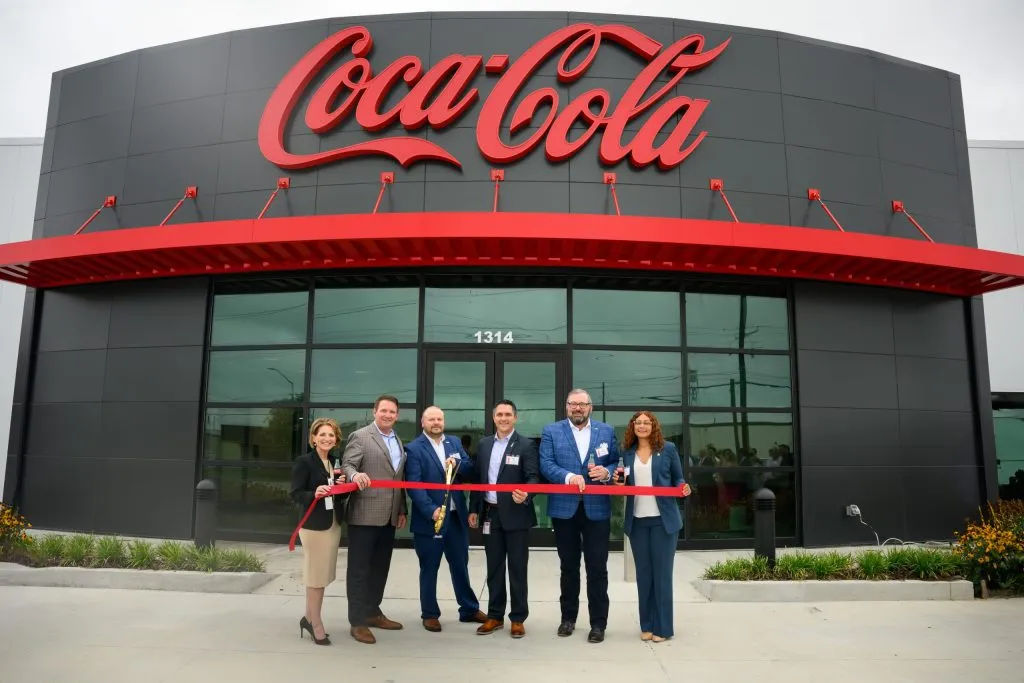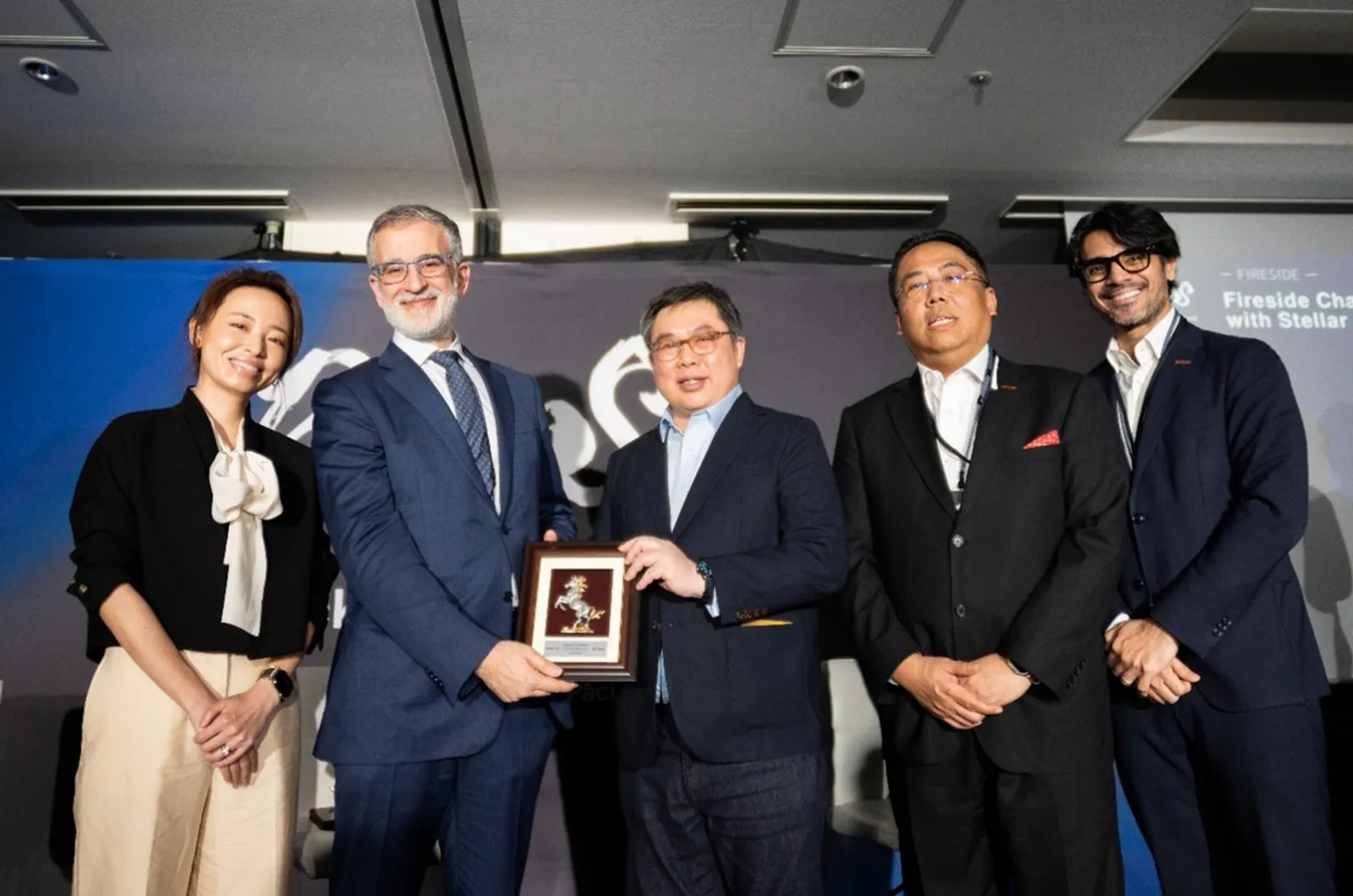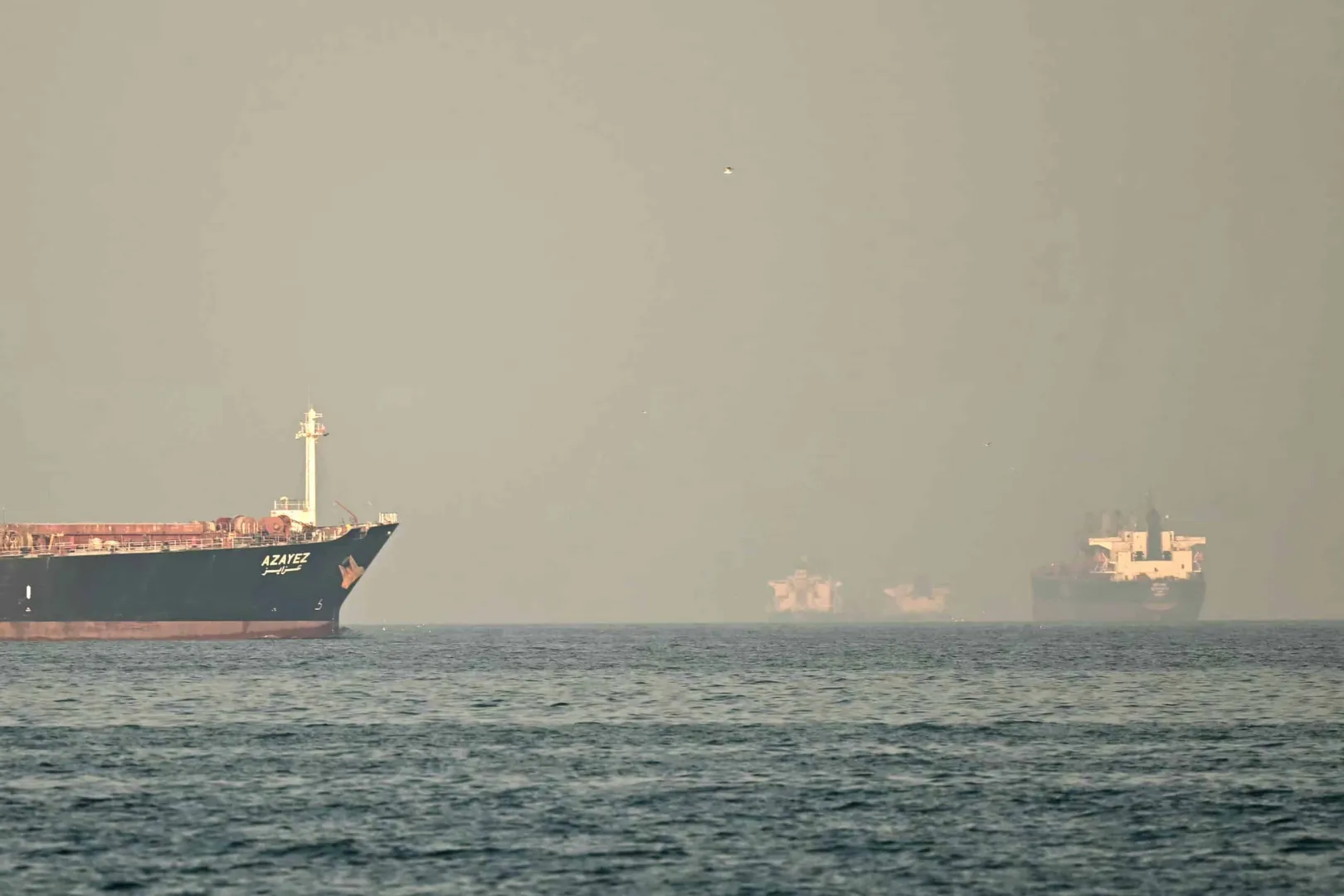The Coca-Cola Company, a global beverage giant, has unveiled a groundbreaking study highlighting its monumental socio-economic impact across the African continent. Announced during the prestigious 2025 U.S.-Africa Business Summit in Luanda, Angola, the comprehensive report reveals that the Coca-Cola system, encompassing The Coca-Cola Company and its vast network of authorized bottlers, alongside myriad suppliers and partners, contributed an astounding $10.4 billion in value-added economic activity across its African value chain in 2024. This colossal contribution underscores Coca-Cola’s deep and enduring footprint in Africa, signifying its role as a powerful engine for economic growth and sustainable development.
The study, meticulously conducted by global consultancy Steward Redqueen, further illustrates that the Coca-Cola system supported more than 1 million jobs across its extensive value chain on the continent. These employment opportunities span critical sectors including retail, agriculture, manufacturing, transport, and various services. Notably, for every direct job created within the Coca-Cola system (which amounted to 36,800 positions), an additional 27 indirect jobs were supported across its intricate network, totaling an impressive 987,000 indirect livelihoods. This multiplicative effect demonstrates how Coca-Cola’s operations serve as a catalyst for widespread employment, permeating numerous local economies.
“Our long-standing presence in Africa, working with locally owned bottlers and suppliers, allows us to drive more sustainable growth and contribute to the continent’s development,” stated Luisa Ortega, president of the Africa operating unit of The Coca-Cola Company. Her remarks, made during the high-profile summit, emphasized the unique operating model that enables the company to create a lasting and tangible impact in local communities. The report also highlighted a significant investment of $4.3 billion in the African economy in 2024 through the purchase of goods and services from local suppliers, representing a remarkable 83% of its total procurement on the continent. This commitment to local sourcing is a cornerstone of Coca-Cola’s strategy, embedding its operations deeply within African economies.
A Century of Refreshment: Coca-Cola’s Deep Roots in Africa
Coca-Cola’s journey in Africa is not a recent phenomenon but a story spanning nearly a century, deeply intertwined with the continent’s history and development. The iconic beverage first arrived in South Africa in 1928, expanding from pre-existing mineral water operations. From those early days, often marked by challenging logistics and the need for ingenious marketing, Coca-Cola gradually spread across the continent. Its expansion was not merely about selling a product; it was about becoming an integral part of local communities, adapting its strategies to diverse cultures and political landscapes.
The company’s deep roots are a result of what many observers call its “Africanization.” This involved a continuous process of local adaptation, from the co-branding of petrol stations with Coca-Cola signage to the proliferation of local advertising campaigns and the development of extensive cooling and distribution networks tailored to African conditions. Despite being an “inessential product,” as some academics note, Coca-Cola strategically positioned itself by becoming intertwined with essential services and civic life, supporting local events and engaging with national celebrations. A notable instance was its complex role during the anti-apartheid movement in South Africa, where it crafted a unique disinvestment strategy in the 1980s that allowed its products to remain available while depriving the apartheid state of tax revenue, ultimately aligning with the African National Congress (ANC) in the post-apartheid era. This demonstrated a nuanced understanding of the local context and a long-term commitment to the continent’s trajectory. Today, Coca-Cola is present in every African nation, often standing as one of the largest private employers on the continent.
The Power of the Coca-Cola System: A Unique Operating Model
The economic impact revealed by the study is largely attributable to Coca-Cola’s distinctive operating model, often referred to as the “Coca-Cola system.” This is not a monolithic entity but a robust network built on a franchise model. At its core, The Coca-Cola Company focuses on producing and selling concentrate to its authorized bottling partners. These bottlers, often locally owned or with significant local shareholding, then take on the responsibility for:
- Manufacturing: Mixing the concentrate with locally sourced water and sugar, carbonating, and bottling/canning the beverages.
- Distribution: Managing extensive logistics networks to get products from factories to millions of retail outlets, even in remote areas.
- Marketing and Sales: Developing localized marketing campaigns and sales strategies that resonate with specific regional consumer preferences.
This decentralized approach fosters deep integration into local economies. It promotes local entrepreneurship, stimulates job creation at various levels, and ensures that a significant portion of the value generated remains within the African countries where the products are consumed. The company’s portfolio in Africa is vast and diverse, extending beyond its flagship Coca-Cola brand to include a wide range of beverages across multiple categories such as juices, water, teas, and energy drinks, catering to evolving consumer preferences.
Unpacking the Economic Colossus: $10.4 Billion in Value-Added Impact
The Steward Redqueen study’s finding of a $10.4 billion value-added economic activity across Africa in 2024 is a testament to the sheer scale of the Coca-Cola system’s operations. Value-added economic activity, in simple terms, represents the contribution of a company’s operations to a country’s Gross Domestic Product (GDP). It reflects the wealth created through its production processes, including wages paid, profits generated, and taxes remitted. This figure demonstrates that Coca-Cola is not just selling drinks; it is actively creating wealth and fostering economic dynamism on a continental scale.
The methodology adopted by Steward Redqueen integrates client-provided operational data with trusted third-party economic sources and industry benchmarks. Their approach goes beyond merely measuring direct financial contributions, delving into the complex “economic interlinkages” that illustrate how the Coca-Cola system drives production, generates income, and supports employment across a wide spectrum of industries and geographies. This comprehensive analysis, often utilizing sophisticated input-output models, allows for a holistic understanding of the ripple effects of such a large multinational’s presence in an economy. For instance, a similar study on Standard Chartered’s impact in East Africa by Steward Redqueen in 2017 showed how bank financing created ripple effects across economic sectors, supporting jobs and generating value-added impact across its supply chain and client base.
A Million Livelihoods: The Far-Reaching Impact of Job Creation
The statistic of over 1 million jobs supported across Africa by the Coca-Cola system in 2024 is perhaps the most compelling evidence of its socio-economic impact. This figure is comprised of:
- 36,800 direct Coca-Cola system jobs: These are individuals directly employed by The Coca-Cola Company and its various bottling partners across their operations (e.g., factory workers, sales staff, administrative personnel).
- 987,000 indirect jobs: This vast number represents employment supported across the broader value chain. This includes individuals working for suppliers (e.g., in agriculture, packaging, logistics), service providers (e.g., marketing agencies, maintenance crews), and customers (e.g., retailers selling Coca-Cola products).
The powerful metric that the system collectively supported 27 additional jobs for every job it directly creates underscores the extensive multiplier effect of its operations. This means that Coca-Cola’s presence stimulates a robust ecosystem of ancillary businesses and services, fostering entrepreneurship and sustaining livelihoods far beyond its direct payroll. For many African economies, where formal employment opportunities can be scarce, this network of indirectly supported jobs is a lifeline for families and communities.
Fuelling Local Economies: The Commitment to Local Sourcing and Investment
A core tenet of Coca-Cola’s strategy in Africa is its profound commitment to local sourcing. In 2024, the Coca-Cola system invested $4.3 billion in the African economy through the purchase of goods and services from local suppliers, accounting for an impressive 83% of its total procurement on the continent. This strategy of “buying local” is not merely a corporate social responsibility initiative but a fundamental business decision that enhances efficiency, reduces import dependencies, and directly benefits African producers and manufacturers.
Examples of local sourcing include:
- Sugar: A significant portion of the sugar used in Coca-Cola products is sourced from local cane farmers and refineries across various African countries.
- Fruits: As Coca-Cola expands its portfolio beyond sparkling beverages to include juices and other fruit-based drinks, it increasingly sources fruits like oranges, mangoes, and pineapples from local agricultural communities. Coca-Cola Beverages Africa (CCBA), for instance, has focused on developing local supplies of fruit pulp in countries like Uganda, even working to support local fruit factories.
- Packaging Materials: Components such as glass bottles, plastic (PET) preforms, closures, and labels are increasingly manufactured locally. This requires Coca-Cola and its bottlers to actively support and train local suppliers to meet their rigorous quality and technical standards, leading to improvements in local industrial capacity and competitiveness. For instance, in Ghana, CCBA proactively assisted local suppliers to produce preforms, closures, and labels, leading to 100% local sourcing of raw materials in that market before 2020.
- Water: Given its primary ingredient, water is inherently sourced locally for bottling operations, contributing to local water management efforts.
This substantial local procurement drives local entrepreneurship, stimulates job creation within supplier industries, and contributes to the diversification and development of African manufacturing capabilities. It creates a virtuous cycle where Coca-Cola’s demand fosters the growth of local businesses, which in turn strengthens the overall supply chain.
Looking ahead, The Coca-Cola Company’s commitment to Africa remains unwavering. Luisa Ortega announced further investments of nearly $1.2 billion on the continent over the next five years. This forward-looking pledge underscores the company’s long-term confidence in Africa’s growth trajectory, conditional on the presence of “stable and predictable policy environments” that encourage and protect such significant foreign direct investment. This call for policy stability resonates with many multinational corporations operating in Africa, who seek clear and consistent regulatory frameworks to de-risk investments and facilitate long-term planning.
Impact Across the Value Chain: Sector-Specific Deep Dive
The Coca-Cola system’s economic footprint in Africa is not confined to isolated operations; it permeates diverse sectors through an integrated value chain.
Nurturing the Retail Ecosystem: From Kiosks to Supermarkets
Perhaps the most visible impact of the Coca-Cola system is its pervasive presence in the retail sector. Coca-Cola products are sold in millions of outlets across Africa, ranging from large supermarkets and convenience stores to countless informal kiosks, roadside vendors, and small “spaza shops” (informal shops typically run from homes in South African townships). This vast retail network acts as a crucial engine for local economies.
For many small business owners, selling Coca-Cola products provides a consistent revenue stream, enabling them to sustain their livelihoods and even expand their operations. The company often provides essential support to these micro-retailers, including coolers, merchandising materials, and training, helping them improve their business skills and increase sales. Initiatives like CCBSA’s “Bizniz-in-a-Box” in South Africa, which creates an ecosystem of viable micro-businesses in township communities, exemplify this commitment. By empowering these small-scale entrepreneurs, Coca-Cola directly contributes to poverty reduction and local economic resilience. The widespread availability of its products relies heavily on this intricate last-mile distribution network, which itself supports hundreds of thousands of jobs.
Empowering the Agricultural Sector
As highlighted by the local sourcing figures, Coca-Cola’s demand for ingredients like sugar, fruit pulp, and water has a direct impact on the agricultural sector. The company’s commitment to sourcing 83% of its total procurement locally means that farmers across the continent benefit directly. This creates stable markets for agricultural produce, encourages investment in farming technologies, and often involves partnerships that support smallholder farmers through training, technical assistance, and improved access to markets. By providing a reliable off-take for their crops, Coca-Cola helps diversify farmers’ income streams and enhances their economic stability, contributing to food security and rural development.
Driving Manufacturing and Logistics
The numerous bottling plants scattered across Africa are major manufacturing hubs, bringing industrial activity and employment to various regions. These plants require significant investment in machinery, infrastructure, and skilled labor. Beyond the factory gates, the massive undertaking of distributing billions of beverages across vast and often challenging terrains necessitates an equally extensive logistics and transport network. This creates thousands of jobs for truck drivers, warehouse operators, and logistics managers. The consistent demand for transportation services also supports local transport companies, fuel suppliers, and vehicle maintenance businesses, further multiplying the economic benefits. The local production of packaging materials, as mentioned earlier, also stimulates manufacturing growth in sectors like plastics and glass.
Catalyzing Service Sector Growth
Beyond direct production and sales, the Coca-Cola system generates substantial demand for a wide array of services. This includes marketing and advertising agencies that develop localized campaigns, maintenance and repair services for equipment, security services for facilities, and professional services such as legal, accounting, and consulting firms. This demand directly supports the growth and professionalization of Africa’s service sector, creating diverse employment opportunities for a skilled workforce.
Beyond Business: Coca-Cola’s Sustainability and Community Investments
Coca-Cola’s commitment to Africa extends far beyond its economic contributions, encompassing significant investments in environmental stewardship and community development. The company recognizes that its long-term success is intrinsically linked to the well-being and prosperity of the communities it serves.
Water Stewardship: A Critical Focus
Given water’s central role in its products, Coca-Cola has made water stewardship a cornerstone of its sustainability efforts. The company understands the increasing water insecurity faced globally, particularly in Africa where one in three Africans face water insecurity. The Coca-Cola system has announced a substantial nearly $25 million investment by 2030 specifically to address critical water-related challenges in local communities across 20 African markets.
This initiative, known as “The Coca-Cola System’s Africa Water Stewardship Initiative,” is a collaborative effort led by Global Water Challenge (GWC) and implemented by a consortium of renowned partners including The Nature Conservancy (TNC), The International Union for Conservation of Nature (IUCN), and the World Wildlife Fund (WWF). The aim is to protect and enhance the health of important watersheds and improve access to water and sanitation services. This builds upon the legacy of The Coca-Cola Foundation’s (TCCF) pioneering Replenish Africa Initiative (RAIN), which between 2009 and 2019, helped improve access to clean water, sanitation, and hygiene for 6 million people across African countries through 120 projects. These efforts align with the United Nations’ Sustainable Development Goal 6, focusing on ensuring availability and sustainable management of water and sanitation for all.
World Without Waste: Pioneering Sustainable Packaging
The global issue of packaging waste is a priority for Coca-Cola. Through its “World Without Waste” initiative, the company has set ambitious global goals, with significant implications for its African operations:
- Collect an equivalent of a bottle for every one sold by 2030: This ambitious target aims to minimize packaging waste by ensuring comprehensive collection and recycling.
- 100% recyclable packaging by 2025: A commitment to design packaging that can be fully recycled, reducing its environmental footprint.
- 50% recycled content in packaging by 2030: Increasing the use of recycled materials, particularly recycled PET plastic, to reduce reliance on virgin plastics.
- 25% reusable packaging by 2030: Promoting refillable and returnable packaging models.
In Africa, these goals translate into tangible actions, including supporting enterprises that focus on waste collection and recycling, such as Plastic Recycling Industries (a division of CCBA in Uganda), which creates micro-enterprise opportunities for waste collectors. In Ethiopia, the Entoto Women Empowerment programme, launched in 2020, has enabled over 260 women to earn higher incomes by collecting and selling used plastic bottles. These initiatives not only address environmental concerns but also create new economic opportunities within the circular economy.
Empowering Communities and Youth
The Coca-Cola system invests in a variety of community development and empowerment programs, often targeting youth and women. The Coca-Cola Africa Foundation (TCCAF) funds initiatives such as “Youth Empowered for Success (YES!)”, a pan-African program launched in 2015. YES! aims to connect young people to employment, training, and mentoring opportunities, with a target to reach 500,000 youth by 2020 through a $4.5 million investment. A new digital platform for YES! was unveiled to ensure wider accessibility, including for those in remote locations or with limited literacy, leveraging SMS and voice-based mobile devices.
Additionally, programs like the “Bizniz-in-a-Box” in South Africa aim to address youth unemployment by creating sustainable micro-businesses. These initiatives provide training, mentorship, and sometimes funding, empowering young entrepreneurs to grow their businesses and thrive. By focusing on economic empowerment through education, workforce development, and entrepreneurship, Coca-Cola contributes to building more inclusive and resilient communities across Africa.
Strategic Stage: The U.S.-Africa Business Summit in Luanda
The choice of the 2025 U.S.-Africa Business Summit in Luanda, Angola, as the platform for this significant announcement underscores the strategic importance both Coca-Cola and the US government place on African economic relations. Hosted by the Corporate Council on Africa, the summit’s theme, “Pathways to Prosperity: A Shared Vision for U.S. – Africa Partnership,” directly aligns with Coca-Cola’s stated commitment to the continent’s development.
These summits serve as crucial forums for high-level dialogue between African Heads of State, senior African Union officials, US government representatives, and private sector leaders. They facilitate discussions on trade, investment, infrastructure development, health, and sustainable growth. By making its announcement at such a prominent event, Coca-Cola not only showcases its contributions but also signals its continued commitment to being a key private sector partner in Africa’s economic transformation, potentially encouraging other major investors.
Africa’s Economic Landscape: Opportunities and Challenges for Multinationals
Coca-Cola’s robust performance and continued investment in Africa are set against a backdrop of a continent brimming with opportunities, yet not without its unique challenges for multinational corporations (MNCs).
Abundant Opportunities
Africa’s consumer market is rapidly emerging as one of the world’s fastest-growing. With a population projected to reach 2.5 billion by 2050, accelerating urbanization, and a rising middle class, demand for consumer goods is surging. The World Bank anticipates Africa’s consumer spending to hit $2.5 trillion by 2030, up from $1.4 trillion in 2015. This expanding purchasing power creates an irresistible pull for companies like Coca-Cola. The expansion of formal retail (shopping malls, supermarkets) alongside vibrant informal markets offers diverse avenues for market penetration.
Furthermore, the ongoing implementation of the African Continental Free Trade Area (AfCFTA) promises to create a single market of 1.4 billion consumers with a combined GDP of over $3 trillion. If fully realized, AfCFTA could significantly boost intra-African investment and foreign direct investment (FDI), making it easier for companies to operate across borders and tap into a truly continental market. This regional integration provides an even more compelling long-term outlook for beverage companies.
Navigating Complex Challenges
Despite the immense opportunities, MNCs in Africa face a unique set of challenges:
- Regulatory Complexity and Inconsistency: Many African countries have complex, sometimes opaque, and frequently changing regulatory frameworks. This can create bureaucratic hurdles, increase operational costs, and make long-term planning difficult.
- Infrastructure Deficits: Unreliable power supply, poor road networks, and logistical challenges can hinder production, distribution, and overall efficiency, particularly in rural areas.
- Political Instability: While many African nations are stable, some regions still grapple with political unrest, which can unpredictably disrupt business operations and investment confidence.
- Currency Instability and Inflation: Fluctuations in local currency values and high inflation rates can impact profitability, raw material costs, and exchange rate losses for companies dealing in multiple currencies.
- Competition from Local Businesses: While MNCs often enter expecting to dominate, they increasingly face stiff competition from agile local businesses that possess deep cultural understanding and strong community ties.
- Perceptions of Exploitation: Historically, some MNCs have faced criticism regarding labor practices, environmental impact, and perceived exploitation of resources. This necessitates a strong commitment to ethical operations and transparent reporting.
Coca-Cola’s success in navigating these challenges stems from its localized operating model, which empowers local bottlers, its deep integration into local supply chains, and its long-term commitment to community development. By investing in local talent, infrastructure, and social programs, the company builds resilience and fosters goodwill, mitigating some of these inherent risks.
Conclusion: A Blueprint for Sustainable Growth in Africa
The Steward Redqueen study paints a compelling picture of the Coca-Cola system as a significant, multifaceted contributor to Africa’s economic development. The reported $10.4 billion in value-added impact and over 1 million jobs supported are not mere statistics; they represent tangible improvements in livelihoods, vibrant local economies, and growing industrial capacities across the continent.
This monumental impact is a direct result of Coca-Cola’s unique operating model—a blend of global brand power and deep local integration through its independent bottling partners. This decentralized, locally rooted approach, combined with a steadfast commitment to local sourcing, sustainability initiatives, and community empowerment, offers a blueprint for how multinational corporations can genuinely contribute to Africa’s long-term prosperity.
As the continent continues its rapid demographic and economic transformation, the demand for partnerships that drive inclusive growth will only intensify. Coca-Cola’s announced $1.2 billion in future investments over the next five years underscores its unwavering belief in Africa’s potential, provided that stable and predictable policy environments prevail. In a world grappling with complex development challenges, the Coca-Cola system stands as a powerful example of how private sector investment, when aligned with local needs and sustainable practices, can indeed refresh the world and make a profound difference. Its journey in Africa is a testament to the power of shared prosperity and the enduring potential of a continent on the rise.
Ready to take your career to the next level? Join our dynamic courses: ACCA, HESI A2, ATI TEAS 7 , HESI EXIT , NCLEX – RN and NCLEX – PN, Financial Literacy!🌟 Dive into a world of opportunities and empower yourself for success. Explore more at Serrari Ed and start your exciting journey today! ✨
photo source: Google
By: Montel Kamau
Serrari Financial Analyst
27th June, 2025
Article, Financial and News Disclaimer
The Value of a Financial Advisor
While this article offers valuable insights, it is essential to recognize that personal finance can be highly complex and unique to each individual. A financial advisor provides professional expertise and personalized guidance to help you make well-informed decisions tailored to your specific circumstances and goals.
Beyond offering knowledge, a financial advisor serves as a trusted partner to help you stay disciplined, avoid common pitfalls, and remain focused on your long-term objectives. Their perspective and experience can complement your own efforts, enhancing your financial well-being and ensuring a more confident approach to managing your finances.
Disclaimer: This article is for informational purposes only and does not constitute financial advice. Readers are encouraged to consult a licensed financial advisor to obtain guidance specific to their financial situation.
Article and News Disclaimer
The information provided on www.serrarigroup.com is for general informational purposes only. While we strive to keep the information up to date and accurate, we make no representations or warranties of any kind, express or implied, about the completeness, accuracy, reliability, suitability, or availability with respect to the website or the information, products, services, or related graphics contained on the website for any purpose. Any reliance you place on such information is therefore strictly at your own risk.
www.serrarigroup.com is not responsible for any errors or omissions, or for the results obtained from the use of this information. All information on the website is provided on an as-is basis, with no guarantee of completeness, accuracy, timeliness, or of the results obtained from the use of this information, and without warranty of any kind, express or implied, including but not limited to warranties of performance, merchantability, and fitness for a particular purpose.
In no event will www.serrarigroup.com be liable to you or anyone else for any decision made or action taken in reliance on the information provided on the website or for any consequential, special, or similar damages, even if advised of the possibility of such damages.
The articles, news, and information presented on www.serrarigroup.com reflect the opinions of the respective authors and contributors and do not necessarily represent the views of the website or its management. Any views or opinions expressed are solely those of the individual authors and do not represent the website's views or opinions as a whole.
The content on www.serrarigroup.com may include links to external websites, which are provided for convenience and informational purposes only. We have no control over the nature, content, and availability of those sites. The inclusion of any links does not necessarily imply a recommendation or endorsement of the views expressed within them.
Every effort is made to keep the website up and running smoothly. However, www.serrarigroup.com takes no responsibility for, and will not be liable for, the website being temporarily unavailable due to technical issues beyond our control.
Please note that laws, regulations, and information can change rapidly, and we advise you to conduct further research and seek professional advice when necessary.
By using www.serrarigroup.com, you agree to this disclaimer and its terms. If you do not agree with this disclaimer, please do not use the website.
www.serrarigroup.com, reserves the right to update, modify, or remove any part of this disclaimer without prior notice. It is your responsibility to review this disclaimer periodically for changes.
Serrari Group 2025
















